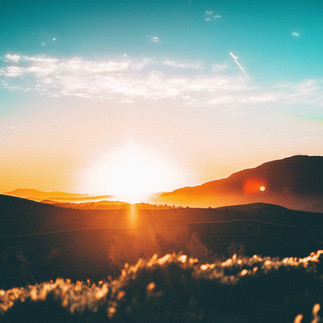A Personal Story of Healing and Connection
As I stood at the edge of the Camino de Santiago, the ancient pilgrimage route in Spain, I felt a profound sense of connection to the countless souls who had walked this path before me. The Camino, with its rich tapestry of history and spirituality, embodies the interplay of diverse cultural and religious traditions.
Walking this path, I encountered pilgrims from all over the world, each carrying their own stories of joy, pain, and hope. It was here, amidst the shared journey and collective reflections, that I began to understand the deep wounds of cultural trauma and the potential for healing and unity – which eventually is what lead me to write my book The Hidden Camino.
Understanding Cultural Trauma
Cultural trauma refers to the collective emotional and psychological impact of historical injustices and conflicts. These traumas, whether from war, colonization, or systemic discrimination, leave deep scars on communities and individuals. They shape our identities, influence our behaviors and family patterns, and often perpetuate cycles of mistrust and division.
In my work as an Educational Psychological Consultant, I have witnessed how these traumas manifest in various ways, from intergenerational pain to social fragmentation. Yet, I have also seen the incredible resilience and capacity for healing that exists within us. By acknowledging our shared traumas and embracing our common humanity, we can begin to mend these wounds and build a more inclusive and peaceful world.
Embracing Empathy and Understanding
One of the most powerful tools for healing cultural trauma is empathy. By listening to and understanding each other's stories, we can bridge the gaps that divide us. During my journey on the Camino, I had the privilege of hearing stories from pilgrims of different backgrounds and faiths. Each story, whether of suffering or triumph, was a testament to the shared human experience.
To foster empathy, we must create spaces where people feel safe to share their stories. Community gatherings, cultural exchanges, and dialogue circles can provide such spaces. These interactions allow us to see beyond stereotypes and prejudices, recognizing the unique experiences and perspectives that each person brings.

Building Inclusive Communities
Inclusion is another key component of healing cultural traumas. Inclusive communities are those that celebrate diversity and provide equal opportunities for all members. This requires intentional efforts to address systemic inequalities and create environments where everyone feels valued and respected.
One way to promote inclusion is through education – even something so simple as my educative blog here at www.louisesommer.co. By teaching about different cultures, histories, and religions, we can foster a greater understanding and appreciation of diversity. In my workshops, I always use storytelling as a tool to highlight the richness of various cultural traditions and the common values that unite us.
Practicing Forgiveness and Reconciliation
Forgiveness and reconciliation are essential steps in the healing process. These practices involve acknowledging past wrongs, taking responsibility, and committing to make amends. They require courage and vulnerability, but they are crucial for breaking the cycle of trauma and building a foundation for peace.
During my travels, I have seen how communities around the world have embraced forgiveness and reconciliation. In South Africa, for example, the Truth and Reconciliation Commission provided a platform for victims and perpetrators of apartheid-era violence to share their stories and seek forgiveness. This process, though painful, was instrumental in healing the nation's wounds and moving towards a more inclusive society.
Moving into Peace, Love, and Inclusion: Practical Steps
1. Create Safe Spaces for Dialogue
Host community gatherings, cultural festivals, and dialogue circles where people can share their stories and listen to others.
Ensure these spaces are inclusive and welcoming to people of all backgrounds and beliefs.
2. Foster Empathy Through Storytelling
Encourage the sharing of personal narratives in schools, workplaces, and community centers.
Use storytelling workshops to highlight common values and shared human experiences.
3. Promote Cultural Education
Integrate multicultural education into school curriculums to teach students about different cultures, histories, and religions.
Organize cultural exchange programs that allow individuals to experience and learn about other traditions firsthand.
4. Encourage Forgiveness and Reconciliation
Support initiatives that promote restorative justice and reconciliation in communities affected by historical injustices.
Provide platforms for open dialogue and truth-telling, where individuals can acknowledge past wrongs and seek forgiveness.
5. Celebrate Diversity
Recognize and celebrate cultural diversity through festivals, art exhibitions, and public events.
Highlight the contributions of different cultural groups to the broader community.
6. Practice Active Listening
Commit to listening without judgment, allowing individuals to express their experiences and emotions freely.
Validate and affirm the feelings and perspectives shared by others.
7. Engage in Community Service
Participate in community service projects that address social inequalities and support marginalized groups.
Use these opportunities to build relationships and foster a sense of collective responsibility.
8. Develop Emotional Resilience
Encourage practices such as mindfulness, meditation, and therapy to help individuals build emotional resilience and cope with trauma.
Provide support groups and resources for those dealing with cultural trauma.
9. Cultural Therapy
Explore cultural therapy, which involves using cultural practices and traditions as a therapeutic tool.
Engage in activities such as traditional crafts, music, dance, and storytelling to foster healing and connection.
10. Pilgrimages and Spiritual Groups
Encourage participation in pilgrimages, such as the Camino de Santiago, which offer opportunities for reflection, connection, and healing.
Join spiritual groups or retreats that focus on personal growth, spiritual exploration, and community building.
11. The Legacy of Mary Magdalene Tour
Consider joining "The Legacy of Mary Magdalene Tour" to France, which explores the rich spiritual and cultural heritage of Mary Magdalene.
This tour offers a unique opportunity to connect with like-minded individuals, learn about ancient traditions, and foster a sense of spiritual and cultural unity.
Exercises for Healing and Connection
Exercise 1: Story Circle
Gather a diverse group of individuals and create a circle.
Each person takes turns sharing a personal story related to their cultural background or experiences with cultural trauma.
After each story, the group reflects on common themes and lessons, fostering empathy and understanding.
Exercise 2: Cultural Immersion Day
Organize a day where participants immerse themselves in a different culture.
Activities can include cooking traditional meals, learning about cultural rituals, and engaging in art or music from that culture.
Reflect on the experience and discuss what was learned and how it broadened perspectives.
Exercise 3: Forgiveness and Reconciliation Workshop
Host a workshop focused on the principles of forgiveness and reconciliation.
Include exercises such as writing letters of forgiveness, role-playing reconciliation scenarios, and discussing the steps to move forward.
Encourage participants to share their experiences and support each other in the process.
A Journey Towards Unity
Healing cultural traumas and fostering peace, love, inclusion, and respect among all cultures and religions is a journey that requires commitment, empathy, and action. By embracing our shared humanity and learning from each other's stories, we can build a world where diversity is celebrated, and everyone feels valued.
In "The Hidden Camino," I explore these themes through the lens of pilgrimage, highlighting the transformative power of shared journeys and collective reflections.
As we walk this path together, let us carry with us the lessons of empathy, forgiveness, and inclusion, creating a brighter and more peaceful future for all.
Did you enjoy this article? Why not share it and inspire a friend.

Louise Sommer is an Educational Psychological Consultant with a passion for exploring how creativity can connect us to the deeper mysteries of Life. A bestselling author of The Hidden Camino, Louise brings a unique blend of psychology, creativity and cultural narratives into her work. She delves into ancient wisdom, scientific exploration, and the profound link between creativity and Life.


























Comments